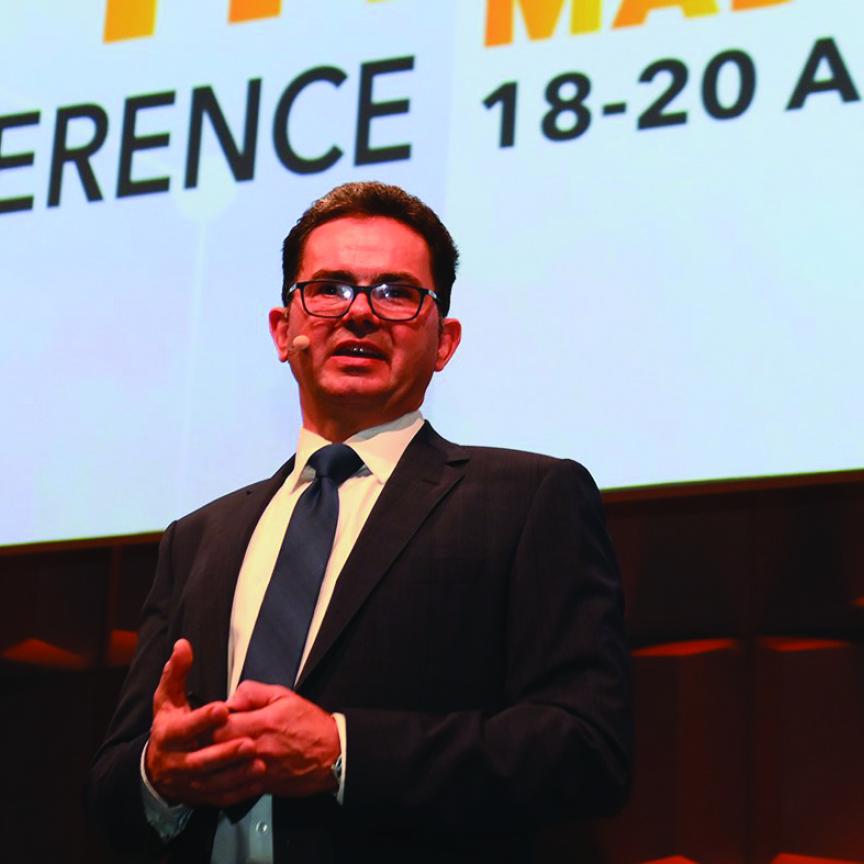How has the strength of the Electronic Communications Code been tested by the dispute between Virgin Media and Durham County Council? Brian Wake offers his view*
Readers will be aware of the UK government’s stated intention to introduce measures intended to make it more ‘straightforward’ for operators to reach agreement with landowners and occupiers of land ‘in order to improve coverage, capability and capacity’ – the result was the Digital Economy Act 2017 (DEA), and more specifically Schedule 1, which sets out the Electronic Communications Code (ECC).
During the consultation process leading up to the passing of the DEA in April 2017, many representations were received from both industry and landowning interests, in attempts to influence the drafting of the ECC to each party’s benefit – the result is not necessarily as either side would ideally have liked.
The measures brought in by the ECC are wide-ranging and include significant changes to the way land is valued and an automatic right for operators to upgrade and share their telecommunications apparatus.
It is not the intention of this article to examine in detail the statutory process available to operators to apply for and obtain ‘Code Rights’, suffice to say that such a process exists, and Virgin Media has decided to exercise its right to take advantage of the process.
Reach an agreement
The ECC is intended to make it simple for operators, landowners and occupiers to come to an agreement over a range of issues relating to the occupation of a site. This assumes responsibility on both parties to act in a manner consistent with the ECC, and the Code of Practice (COP) issued under it.
However, the COP does not have the force of law. Its purpose is to ‘set out expectations for the conduct of the parties to any agreement made under the Code. It is not a guide to the Code or the Code regulations, but it is intended to complement them.’
Having said that, it is almost inconceivable that the Courts will ignore the COP in any proceedings, but any award of ECC rights will have to follow the ECC first and foremost, and the parties’ conduct may go some way towards determining whether the basis for a compulsory rights application has been made out, for example, ‘that the public benefit likely to result from the making of the order outweighs the prejudiced to the relevant person’ (paragraph 21(3) of the ECC).
In December 2017, when the ECC came into effect, many negotiations were stalled while operators reconsidered their positions, especially with regard to valuation issues. The writer is still involved in one case where, despite repeated requests, the operator has singularly failed to progress the matter, notwithstanding that the lease concerned was all agreed, save for one issue regarding a ‘lift and shift’ provision.
Experience, therefore, would suggest that operators have, at times, been using the ECC in a way that is inconsistent with the COP.
The wayleave problem
Virgin Media is taking legal action against Durham County Council, for what it calls a ‘blockade’ on its delivery of ultrafast broadband by asking for increased payments to access the land upon which it hoped to increase its network by laying new fibre optic cable.

The partnership with Durham, which was announced at the end of 2017, had been put in place with the aim of extending the provider’s high-speed network to around 16,000 properties in Durham by the end of 2019. Virgin Media said that this would benefit the area by increasing speeds to 350Mb/s. Tom Mockridge, chief executive of Virgin Media said of the decision to sue the council: ‘We are disappointed to be taking this action against a council with whom we initially had a good working relationship. By demanding money for land access, Durham County Council is now putting up a broadband blockade to thousands of homes and businesses across the county. Durham has no basis for imposing any kind of a land levy in these circumstances, and its attitude runs counter to that we have faced from more forward-thinking councils.’
The COP states that one of its principal purposes is to establish a voluntary process which avoids recourse to the courts and ensures ‘every effort’ is made to reach a voluntary agreement. It also says that the parties to any negotiation ‘should treat each other professionally and with respect’ and that operators ‘ought to be responsible for the behaviour and conduct of any contractors that they instruct to carry out work on their behalf.’
Code violation
One of the allegations made against Virgin is that their contractors have obstructed driveways and caused damage to property. This would violate the ECC in that an operator is instructed to not interfere with any means of access to or from any other land. Virgin have rebuffed this allegation, claiming that they have fired the culpable contractors.
It would appear to me that Virgin Media has suffered at the hands of its (now ex) contractors, but the company may have been unwilling to continue negotiations with the council in the face of demand for payments which Virgin Media considers unjustified. There is no guidance available as to what constitutes ‘every effort’, so we can but speculate as to whether Virgin Media complied with the requirement.
The provisions in the ECC relating to the payment of appropriate consideration are complex, and surveyors and valuers on both sides of the fence are still picking their way through them. There has been a feeling that mast rents (and consequently rents for other necessary infrastructure, such as equipment cabinets) would tumble following the introduction of the ECC, but whilst there has undoubtedly been some downward pressure, it remains to be seen how this will play out in the long run, for example, at rent reviews.
In dealing with the issue of consideration, paragraph 23(5) the ECC says that the terms of any ECC agreement must include the terms the court thinks appropriate for ensuring that the least possible loss and damage is caused by the exercise of the code right to landowners and occupiers. It is interesting to note that the force of the emphasised words is not lessened by the addition of ‘reasonable’ or some other watering down.
Held to ransom
The predominant issue for the court to consider in this case is whether the council’s payment demand is indeed holding the fibre rollout to ransom, or is merely a reasonable exercise of its rights as landowner to receive the proper consideration for cable laying.
Paragraph 24 of the ECC sets out that the consideration is to be ‘an amount or amounts representing the market value of the relevant person’s agreement to confer or be bound by’ the particular code right or rights sought. In pre-ECC representations, the Country Landowners’ Association said that ‘the scale and effect is not likely to be as significant as originally thought, as it is now clear that the basis for a site payment will remain that of open market value.’
The valuation is to be on the basis of a ‘willing seller and willing buyer’, and that the right being valued does not relate to the provision or use of an electronic communications network. The intention appears to be to try to set out the basis for a true ‘market value’, whilst avoiding any ‘special purchaser’ element in favour of operators. If that is the case, one has to ask why the council might not be perfectly entitled to demand terms which it considers as being ‘market value’. e allegation that the council is holding the rollout process to ransom is clearly down to Virgin Media’s frustration with the council, but we have yet to see the council’s response to the claim, which I suspect will be based on considerations of the operator’s compliance with the COP, and a close examination of the valuation principles enshrined in the ECC.
We can wager with confidence that if the matter is not sealed without a full court hearing, the unsuccessful side will look to appeal any decision, and therefore this case should be watched closely for any further developments. It may be the first, but it probably won’t be the last, case to be fought on this point.
Brian Wake is a lawyer at Excello Law
* Since this article was written, Virgin Media and Durham County Council have reached an amicable agreement on land access terms, and work has resumed (see Virgin Media, Durham County Council reach amicable agreement, network expansion resumes).


